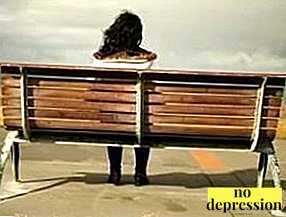The process of training and education of children practically impossible without conflict.
The conflict between teacher and student - what is the psychology of its occurrence?
What are its causes? How can this conflict be avoided or prevented?
Psychology and causes

Conflicts between teacher and student can be classified into the following categories:
- Conflicts related to student performance, which relates to their academic performance.. They can be expressed in the student's unwillingness to perform a particular task, or its careless performance. The reasons for it may be different - problems with the assimilation of the new material, the fatigue of the student, the lack of assistance to the student by the teacher with her real need.
Especially often such conflicts arise during a brief interaction between a teacher and a student, when the relations between them lie exclusively in the official plane, limited only by studies.
They can also be provoked by the exaggerated demands of the teacher for his students.
- Conflicts caused by the motivation of actions. There are cases in which the teacher may misinterpret the motive that prompted the student to commit a particular act, although in reality the same student’s action may be motivated by different reasons. In this case, the teacher has problems with the correction of the behavior of children with a false assessment of its true causes. This is possible with the superficial attitude of the teacher to the relationship of his students.
- Conflicts between teacher and student, often caused by incorrect actions of the teacher in resolving this or that problem situation. The peculiarity of these conflicts is their protracted nature, the transition to the stage of personal confrontation of the teacher and student. They often lead to long-term mutual hostility and, as a result, disruption of the normal interaction between the teacher and the student.
In kindergartens the cause of such conflicts is similar - the child’s refusal to fulfill this or that requirement when he is not yet used to the new teacher, or the teacher’s requirements do not correspond to the child’s level of training.

About the causes and methods of resolving conflict situations between teachers and children in this video:
Examples of pedagogical incidents and how to solve them
What are the most common conflicts that arise in the learning process and how can they be resolved?
Between children
This is the most common type of conflict in life.
The teacher in this case is not their direct participant, but his presence is necessary for their proper resolution and warning.
The reasons for disagreements between children may be as follows:
- the child’s desire to earn or maintain authority among peers and related rivalry;
- fraud or mutual insults of children among themselves;
- aggression towards students who receive special attention from the teacher;
- the sympathy of the child to another student or student who remains without reciprocity;
- the struggle between children for the sympathy of a pupil or pupil.

How to properly resolve the conflict between children?
Sometimes children able to resolve a conflict situation and without the help of a teacher. However, if an adult intervention is required, it is better to do this without undue pressure.
For example, one student teases another, or names him. You can not force the student to apologize publicly to the offended child.
Ideally the teacher must simulate the situation, ask a leading question, in response to which the student himself will make the right decision to resolve the conflict.
An independent constructive approach to solving a conflict situation will also be an excellent skill for the student, which will be useful to him in the future.
Most often those children who are in conflict can't find hobbies for themselves. The teacher can reduce the number of conflicts if the student recommends a section or a circle that the child will like, talk to parents, who can also contribute to resolving the situation.
Children's conflicts at home, in the garden, at school: what to do? Find out from the video:
Between parents

These conflicts often arise out of the hostility of the parents' children among themselves.
As a result, parents begin to sort things out for their children, without delving into the cause conflict situation.
Teacher or educator to resolve this situation need to talk with parents, trying to be as impartial as possible to both sides of the conflict, propose the solution that is acceptable to all parents.
It is not recommended to evaluate the actions of a student, based on his previous actions - it is necessary to work with this particular situation without referring to the past in order not to provoke even greater disagreements.
For example, one student insults another, and an offended child complains to his parents. When they meet, parents begin to sort things out between themselves.
In this case the teacher must intervene in the conflict and impartially tell both conflicting parties about the behavior of their children. Parents should also be invited to work at home with their children, to set them up for a friendly resolution of the situation, and not to continue the conflict.
Between teacher and student

This is the most difficult type of conflict, which, moreover, may affect the child’s learning of the curriculum.
The reasons for these conflicts are as follows:
- Different teacher requirements for different students.
- Excessive teacher requirements for the student.
- Failure to fulfill their duties as a teacher, the discrepancy to them.
- The absence of any encouragement by the teacher to the student who diligently performs his academic work.
- The inability of the teacher to reconcile with those or other personal qualities of the student.
Best of all, if the teacher negates the tense situation at the very beginning of its occurrence, without bringing it to the stage of undisguised hostility.
For example, it is very easy to provoke a continuation of the conflict. raising your voicethat can trigger similar actions in response.
Most often, teacher conflicts arise with students who for one reason or another behind the subject, taught by a teacher or unfair approach to his study.
In some cases, to resolve a situation, the teacher should step over his own dislike and try inspire the student to diligent workencouraging his expectations in personal abilities.

Reverse statements, statements that the student is not able to perform a particular task can only aggravate the situation. When a teacher communicates with a child it is important not to show any personal negative emotions.
Also, students often fairly high demands to the justice of the teacher, therefore, in dealing with controversial issues, the teacher should pay attention to the fact that children will immediately respond to biased decisions.
For example, a student in a classroom behaves aggressively, throws pieces of paper at his classmates, and does not defiantly react to a teacher's remarks.
In this case, the teacher can calmly make an ironic remark about the mood of the student in the key, for example - "But Baba Yaga is always against." It is important that the statement was not made with a touch of personal dislike.
After the lesson, you can talk in private with the student, taking his temporary mood and motivating him to contain negative emotions.
The most important thing, so that the child understands that he is accepted even in a bad mood and was determined to improve relations with his peers. The escalation of the conflict can lead to even greater denial of the student constructive relationship.
Expert opinion on conflicts between teacher and student:
Between the teacher and parents

To provoke the occurrence of such a conflict can both teacher and parents of students.
The main reasons for such situations are as follows.:
- inconsistency of the teacher’s and parents’s views on the educational process;
- personal dislike of the parent and teacher;
- parent’s rejection of teacher’s educational methods;
- parent's conviction that his child deserves higher marks.
Before resolving a conflict situation, the teacher must work out the situation impartially, identify possible solutions and only after that proceed to a dialogue with the parent.
During the conversation, one should also behave with maximum restraint and calm, however, without creating the impression of being indifferent to the situation.
For example, a student negatively characterizes his classmates, while his mother unconditionally accepts his words on faith. As a result, she comes with a complaint to the teacher about his passive reaction to establish mutual understanding between the students.
The teacher in this case should to pay attention to the parent to the fact that her son could also cause a conflict between them and offer to make mutual efforts to improve relations between students.
Conflict with the school teacher. Bullying at school. Psychologist tips:
How to avoid conflict in the classroom or kindergarten: prevention

In order to avoid conflict situations or minimize their number, a teacher or educator must make the same requirements for all students, not dividing children into "loved ones" and "not so loved ones".
If possible, it is worth the most fair approach to solving disputable situationsso that each student does not feel deprived of his rights.
To avoid conflict with parents, a teacher or educator at a meeting should tell parents about the educational process, so that a particular requirement for children's performance was not an unexpected surprise for parents.
Also, to prevent conflicts, the teacher should tell parents about the controversial situations that arise between children, try to work them out in advance, preventing the escalation of hostility between children.
The teacher or caretaker must not show personal dislike for his wards, treat equally even to those children who for one reason or another do not cause him personal sympathy.
It is also important not only to strive to eliminate conflicts that have arisen, but also to strive to motivate children to a good relationship in the team.
Ways to resolve pedagogical conflicts:



